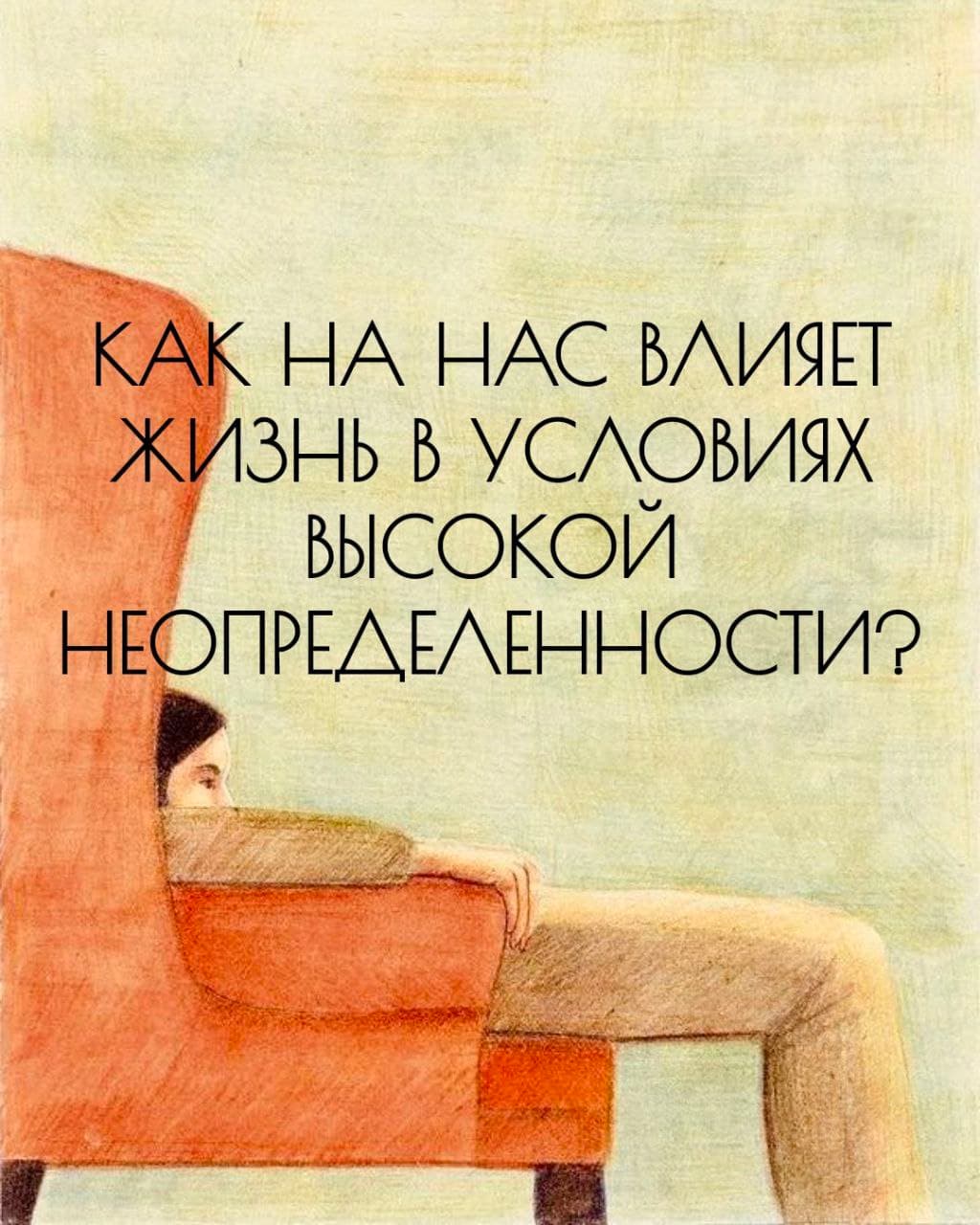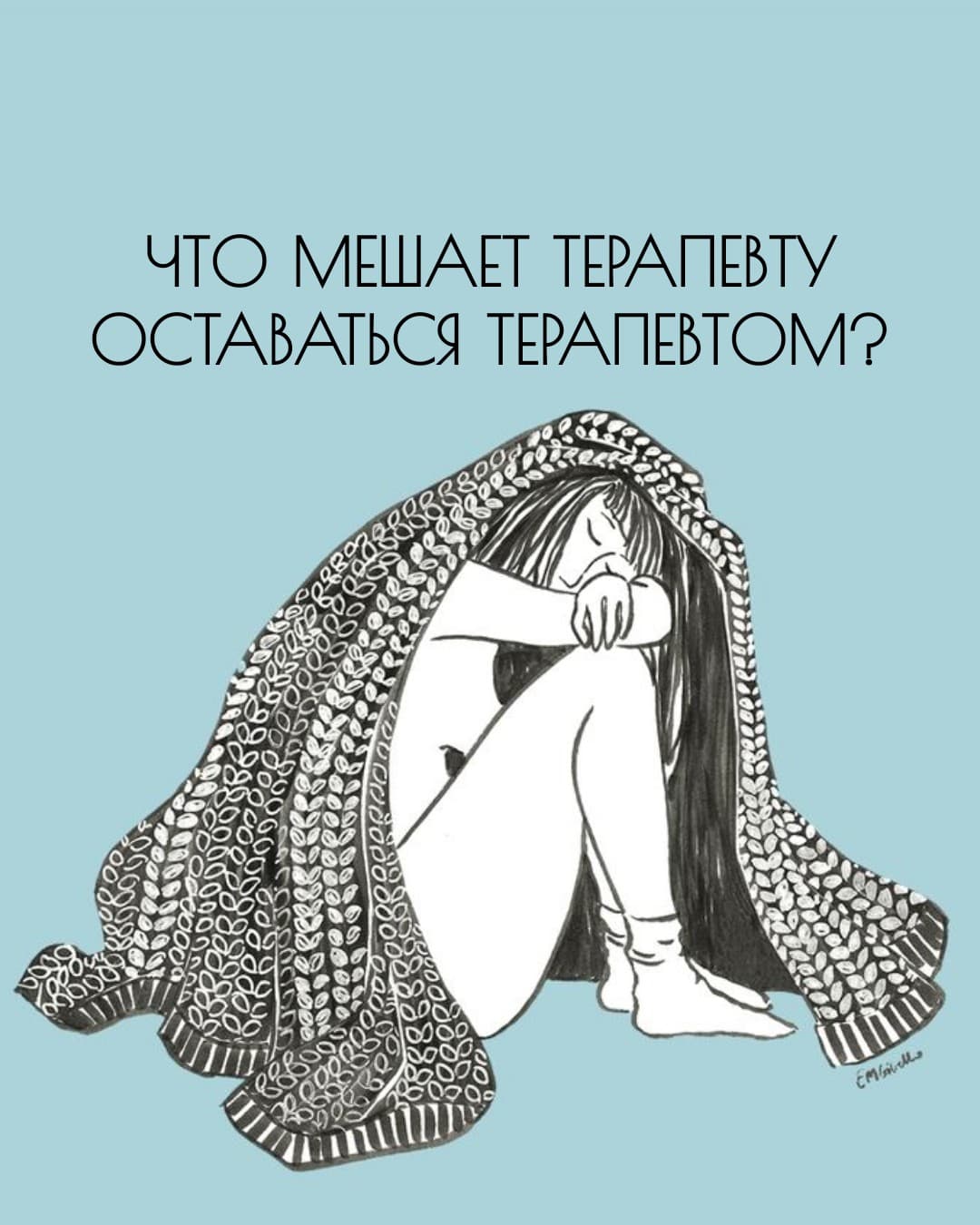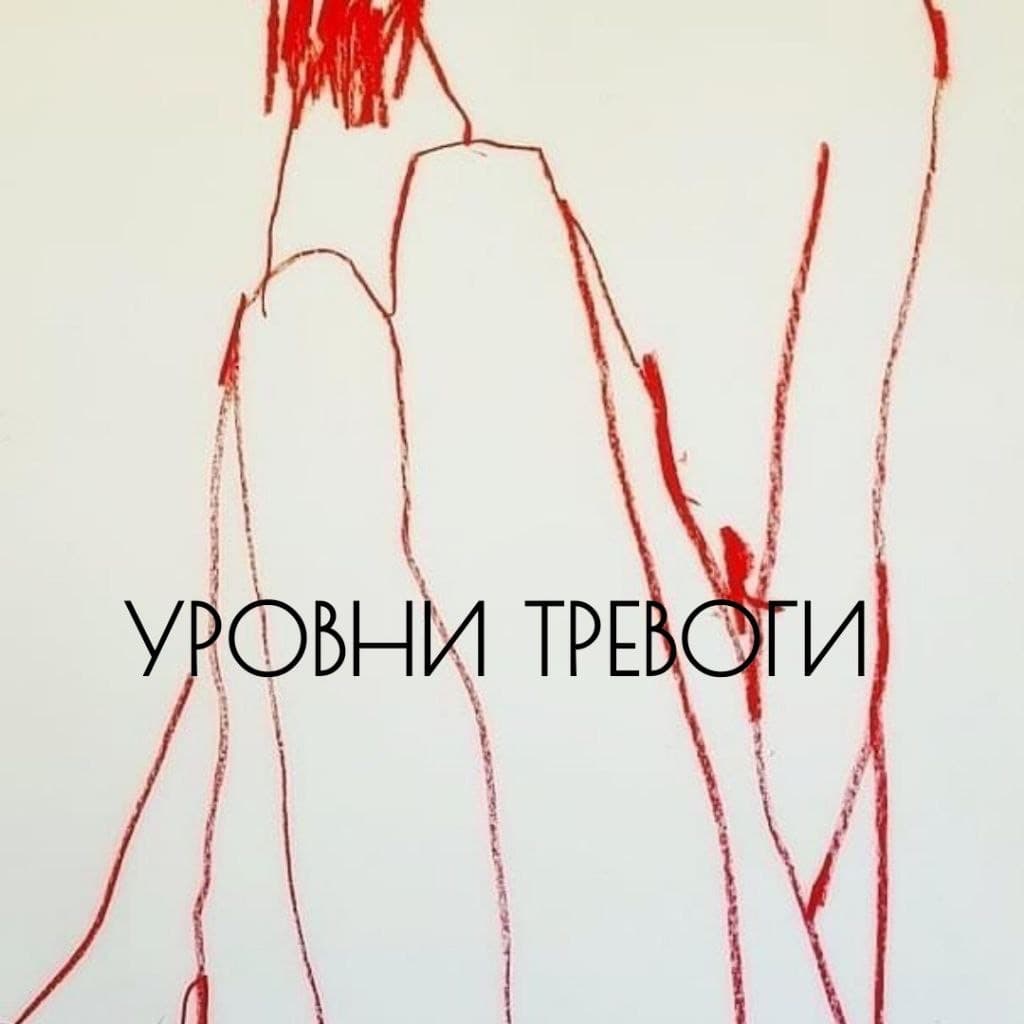
@omprograms
Uncertainty is almost inevitable and, in a way, even a familiar part of our lives. But when the level of uncertainty is high, it can affect a whole range of important aspects of our lives.
Psychotherapist Olga Movchan on Finding "Your People" in a World of Disagreement and Online Communication
Recently, the concept of "our own" has been losing its former meaning for many people or has significantly narrowed. What is happening to our sense of belonging now, against the backdrop of war, when postmodernist values seem outdated, and new ways of being with others have yet to be found?
The need for belonging is one of the most fundamental and ancient human needs. Humans are social creatures. In the ancient world, exile was considered a more severe punishment than death. The feeling of belonging affects basic aspects of our lives—emotional stability, safety, self-respect.
The need for experiencing belonging is supported physiologically. When establishing social connections, tactile contact, hugs, a range of hormones and bioactive substances are produced, including oxytocin—the "bonding hormone," which helps reduce stress and anxiety; dopamine—the "pleasure hormone," enhancing the sense of joy and satisfaction from belonging to a group; and serotonin—a neurotransmitter associated with mood and social adaptation. A deficit of serotonin can lead to depression and feelings of loneliness. The sense of belonging is also associated with a decrease in cortisol levels, the "stress hormone."
In addition to the desire to belong, each person has an inherent drive for individuation. Belonging provides safety and stability: it's no coincidence that stability is promised by all populist national leaders. Individuation is responsible for development, seeking new experiences, finding one's place, and role in society.
At different times in different societies, the drive for belonging or individuation dominates. In more peaceful periods, when belonging is not a matter of life and death, people become more concerned with individuation, identity, and their personal role in society. When times are anxious and dangerous—during wars, natural disasters, political chaos—the question of belonging becomes part of safety and survival.
Simultaneously, during significant political, economic, and cultural changes, traditional forms of belonging cease to provide support and stability: people lose connection with communities they traditionally belonged to (family, friends, religious and professional groups, the state, and culture), or experience belonging as something dubious, painful, or impossible. This can be called a crisis of belonging.
After February 2022, many Russians reported that not only belonging but also the context they traditionally perceived as their "cultural code" (favorite Soviet films, war songs, stories about the war) became impossible, as if justifying the war against Ukraine. Such stories ceased to be about the experiences of grandparents and became part of propaganda.
The crisis of belonging is experienced quite painfully, especially during unstable periods, and is accompanied by emotional and physiological changes. On a psychological level, a person may experience anxiety, a sense of isolation, loneliness. Since belonging is linked to identity, confusion, a lack of understanding of "who I am," and a sense of loss of life's meaning may arise. It's not surprising that clients have been particularly frequently complaining about confusion and a sense of lost meaning over the past year—I know this from my own professional experience and that of my colleagues.
Following WWII, much of Europe and the US gradually became accustomed to a relatively peaceful life. Belonging started to evolve. While wars didn’t disappear entirely, long global conflicts were rare.
Several trends emerged in developed countries:
Safety—physical, economic, and social—increased significantly. People began to "survive" alone. In many cases, life even became easier this way. Relationships became more superficial and temporary. Family ties, often maintained through Skype, were more a choice than a necessity.
Mobility increased. Higher living standards made it easier for people to move across great distances with little economic loss. People relocated without having to change their habits.
A new global economic system allowed people to seek better jobs or conditions anywhere in the world. Staying in one job until retirement became outdated. The rise of online work made professional belonging even more flexible.
Digital technologies made communication easier but also "disembodied." The unity of place, smell, gestures, posture—these physical cues disappeared. Online meetings became just a button click. But clicking "Join" is not the same as making tea and thinking about what to wear.
A total crisis of trust emerged. Information became abundant and contradictory. Buying cat food required research or blind trust. AI-generated content blurred fact from fiction. Consumers were bombarded with ads and questionable products. Everything had to be questioned. Social systems—taxes, housing, marriage—became so complex they required intermediaries. Trust in states, cities, or communities eroded.
These shifts coincided with the rise of postmodernist thinking, notably by Derrida, Deleuze, and Guattari. Belonging became a personal choice, a fluid process, not a fixed category. Traditional affiliations were devalued, and people began to redefine belonging as situational and temporary.
Rigid belonging started to feel suffocating or dangerous. Becoming a cosmopolitan was a strategy of psychological survival. People turned inward—toward identity, self-fulfillment, pleasure. With life relatively secure, they sought adventure or meaning: joining Doctors Without Borders, teaching in Somalia, practicing ayahuasca retreats.
Remote work and easy travel supported this fragmentation. New bonds formed more easily, and breakups hurt less. Online culture normalized short-term jobs, rented apartments, casual friendships. This created a new kind of belonging: project-based.
Relationships became temporary and transactional: valid only as long as everyone's goals aligned.
Zygmunt Bauman called this the "liquid society." In a globalized, digital world, people lost clear structures—at work, in family, in physical space. They also lost connection with their own bodies and emotions.
Project-based belonging doesn't satisfy our need for stability or protection. Say you're invited to a great eight-month project in Austria. It’s exciting, the people are nice, but you know it’ll end soon. Is it worth forming deep bonds?
At the same time, people began seeking new types of belonging—ones not tied to geography, family, or profession. The rise of digital communities and algorithmic content gave us groups that reflected our values. People began identifying with ideologies.
These ideological groups function like traditional ones. Often a "core" forms that controls access to privileges. Members must prove loyalty, often by giving up personal views. Dissenters are excluded. Especially during crises, fear of exclusion keeps people silent. Internal critics are labeled stupid or evil. Gatekeepers—"moral tuning forks"—emerge to judge who’s in and who’s out.
This leads to radicalization. Facts are replaced by group beliefs. Discussion becomes binary: are you one of us or not? Online, exclusion is easy—just block or ban someone. It may not hurt physically, but emotionally it can be devastating.
In the early 21st century, it seemed new forms of belonging had stabilized. But recent global unrest suggests people—especially in post-Soviet countries, Europe, and the U.S.—are searching again.
The instability and disembodiment Bauman described became official during the pandemic. COVID-19 brought fear, isolation, helplessness. It felt like a kind of war.
And then, actual war began. While the fighting happens in Ukraine, the psychological effects are widespread. War drives people to seek safety in belonging, but at the same time, it breaks existing ties. Families split over political beliefs. Some fled, losing jobs and close friends.
Ideological and project-based belonging failed the stress test. One client, a feminist activist, was attacked by her own online group for expressing a less radical view. Suddenly, she was out.
Social groups disappoint. Leaders behave erratically. Communities fight internally. When belonging is supposed to offer safety and consistency, this instability feels unbearable.
Project-based connections are too shallow. And now they conflict with ideological loyalty. A client, Sveta, a Ukrainian from Dnipro, moved to Madrid with her Russian husband. She befriended another woman from Dnipro. But when the woman heard Sveta’s son spoke Russian, she ended the friendship.
Another client, Katya, moved to France. Her family is scattered across Israel and Europe. A new acquaintance invited her to a cozy house concert. Katya arrived—and found guests waving Palestinian flags. So much for comfort.
We are stuck between the fluidity of project-based ties and the rigidity of ideological ones. Traditional anchors—family, work—no longer offer support.
Perhaps the way forward is through dialogue with people who think differently. Dialogue is rare during war, but it is essential. Hearing diverse perspectives—without losing your own—supports critical thinking and emotional resilience.
Now is a time for nuance. The age of “packaged truths” is over. That requires us to sit with uncertainty and withstand loneliness.
Valeriya Novodvorskaya once said that dissent rests on broad-mindedness and competence. She was both a loner and a creator of communities. She had the rare quality of inner freedom—and it frustrated her that others didn’t share it.
Freedom brings responsibility. But it also allows you to find people with shared values—where doubt is permitted, mistakes accepted, and disagreement doesn’t lead to exile. This kind of free belonging can reduce fear and vulnerability. It makes room for outliers, the strange ones—those who often see clearest, because they are not afraid to be alone.
Maybe instead of choosing between isolation and forced affiliation, it's time to build new forms of belonging—ones that make space for freedom and uncertainty.

Fill out the form below, we will answer your question shortly!

Uncertainty is almost inevitable and, in a way, even a familiar part of our lives. But when the level of uncertainty is high, it can affect a whole range of important aspects of our lives.

WHAT PREVENTS A THERAPIST FROM BEING A THERAPIST?

Alarm levels. What is anxiety and how to deal with anxiety?

What is neurosis, and who are neurotics?